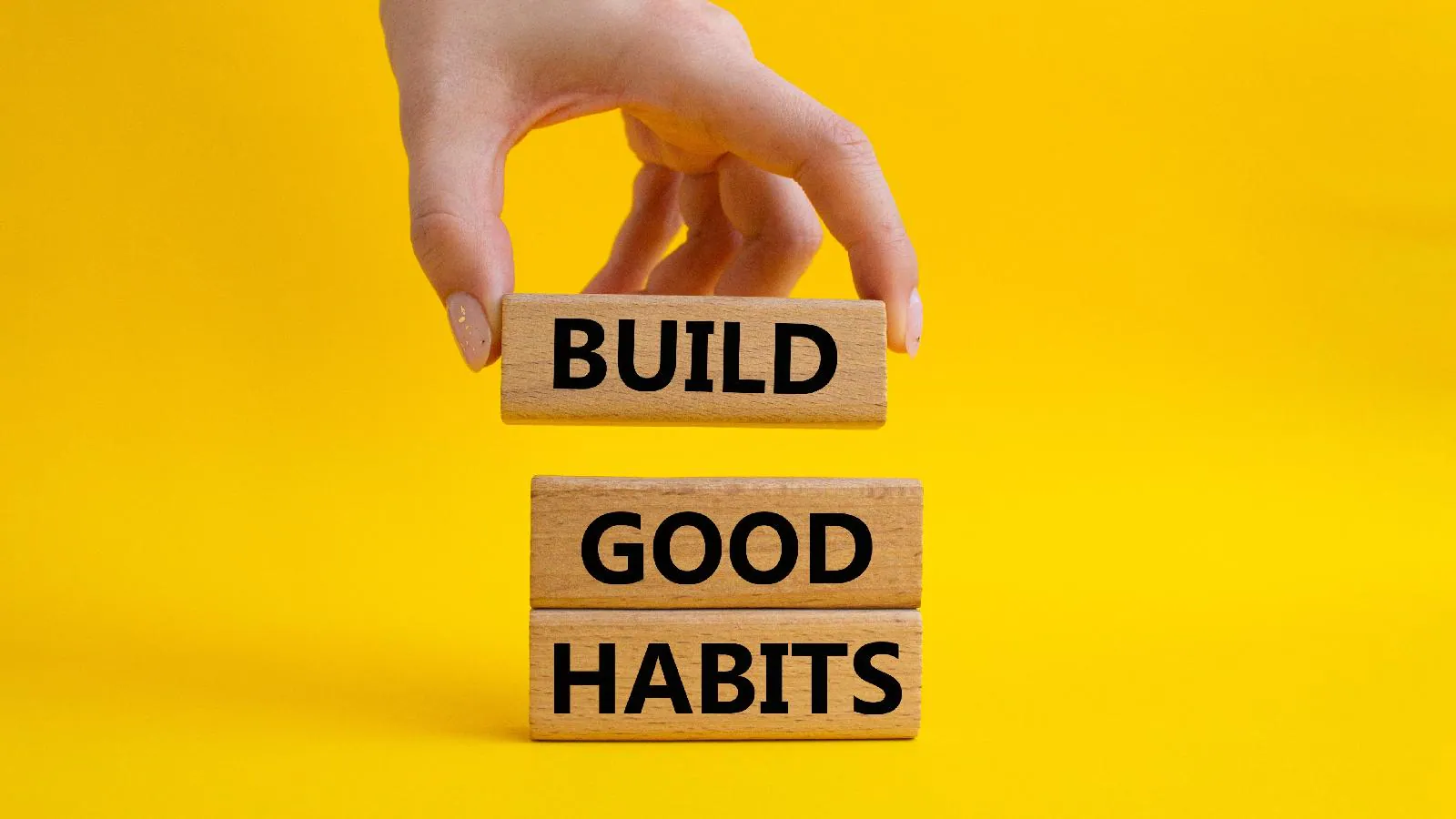Have you been dreaming of a life filled with health, wealth, and happiness? Want to make it happen for real? You can do it with the power of good habits. In this blog post, we’ll explore how to build habits that will transform your life for the better.
Understand Why Habits Are Important
Good habits are important because they provide the structure and discipline necessary to reach our goals. They play a critical role in helping us become more efficient and productive, while also helping us stay focused and on track. In The Power of Habit, Charles Duhigg explains how habits are formed and how they can be changed. He identifies three components of habits: cue, routine, and reward. Habits are formed when you link a cue (something that triggers the behavior) to a routine (the behavior itself) and then a reward (something that reinforces the behavior). By understanding how habits work, we can use them to our advantage to reach our goals.

Understand How Habits Work
In his book The Power of Habit, Charles Duhigg explains the science behind why habits are so powerful. He explains that habits are formed through a three-step loop: the cue, the routine, and the reward. The cue is the trigger that reminds your brain to execute the habit, the routine is the action taken in response to the cue, and the reward is the positive reinforcement that reinforces the habit. By understanding this process, it is possible to create good habits that will help you reach your goals.
Set Clear Goals
Setting clear goals is an integral part of forming successful habits. Without a clear idea of what you want to achieve, it can be difficult to stay focused on the task at hand. When setting goals, it’s important to make sure they are SMART: Specific, Measurable, Achievable, Realistic and Time-bound. A goal like “I want to lose weight” is too vague and doesn’t provide enough guidance. Instead, try setting a goal like “I want to lose 10 pounds in the next 6 months.” This goal is specific, measurable, achievable, realistic and time-bound. With this goal in mind, you can now develop a plan to reach it.
Develop a Plan to Reach Your Goals
Now that you have a better understanding of why habits are important and how they work, it’s time to develop a plan to reach your goals. To do this, you need to set clear goals and make your environment conducive to forming habits. Start with small, achievable goals and then build up your momentum as you continue to make progress. The key is to focus on one goal at a time and be accountable to yourself and others.
Charles Duhigg’s book, The Power Of Habit, outlines the key steps to building habits that will transform your life. One of the most important steps is to “make your bed” every day. This seemingly small action sends a powerful message to your brain that you are in control and that you can accomplish anything you set out to do. It also helps to create a sense of order and organization that can help you stay focused and motivated.
Developing a plan to reach your goals also means taking a look at the resources available to you and understanding the steps necessary to get there. This may include finding a mentor or coach, attending seminars or workshops, reading books, or joining support groups. You may also need to adjust your environment to make it easier to stick with your plan. For instance, you may need to get rid of distractions or set up an organized workspace.
Finally, tracking and celebrating your progress is essential. It helps to keep you motivated and allows you to see how far you’ve come. Whenever you reach a milestone, take a moment to recognize it and reward yourself for all the hard work you’ve put in.
By following these steps and developing a plan to reach your goals, you
Make Your Environment Conducive to Forming Habits
Creating good habits and maintaining them is a lot easier said than done. It takes dedication, discipline, and commitment to make them stick. One of the best ways to make this process easier is to create an environment that’s conducive to forming good habits.
Start by setting up a routine that makes it easy to stick to your goals. For example, if you’re trying to build a habit of exercising, set aside a specific time each day when you will complete the exercise. This helps to create a sense of structure and consistency, and it gives you something to focus on.
In addition, it’s important to create an environment that encourages and motivates you to stick to your goals. Create a workspace that inspires you, or make your bedroom a sanctuary that helps you relax and rest. You can also enlist the help of friends or family members who can help keep you accountable and motivated.
Finally, make sure that your environment has the necessary tools and resources you need to succeed. If you’re trying to develop a habit of reading, for example, make sure that you have access to plenty of books and magazines. If you’re trying to build a habit of exercise, make sure that you have the right equipment and access to a gym or other facility.
By creating an environment that’s conducive to forming good habits, you’ll be more likely to stay motivated and focused on achieving your goals. The Power of Habit by Charles Duhigg provides further insight into the science behind forming and maintaining habits, and it can help you better understand how to make your environment work for you.
Track and Celebrate Your Progress
Once you have set clear goals and developed a plan to reach them, it’s important to track your progress and celebrate any successes you have. Tracking your progress will help you stay focused and motivated, while celebrating your successes will help reinforce the positive behavior you are trying to build. Keeping a journal or using a tracking app can be a great way to keep yourself accountable and monitor your progress. Additionally, make sure to reward yourself for your successes. This could be something as simple as taking a few minutes to enjoy a cup of coffee or a longer break to take a walk. Whatever it is, make sure that you take the time to recognize and celebrate your successes. Doing so will help reinforce the positive habit that you are trying to create and will keep you motivated to continue working towards your goals.
Focus on One Habit at a Time
Once you have set clear goals, developed a plan, and made your environment conducive to forming habits, it’s time to start focusing on one habit at a time. Trying to tackle multiple habits all at once can be overwhelming and lead to failure. It is much better to focus on one habit until it becomes second nature before moving on to the next one.
By focusing on one habit at a time, you are more likely to stick to it and make it a part of your daily routine. This is because it takes time and repetition to form new habits. It is important to keep in mind that some habits will take longer to form than others. For example, it may take several weeks or even months to create a habit like exercising regularly. Be patient and be consistent!
Don’t forget to track and celebrate your progress. When you are able to focus on one habit at a time, you will be able to measure your progress and celebrate your successes. This will help to keep you motivated and ensure that you stay on track.
Start Small and Build Momentum Slowly
Building habits that will transform your life doesn’t happen overnight. It takes time and effort to develop new habits and make them stick. To get started, it’s important to begin small. This means starting with smaller, easier goals and slowly building up momentum. As Charles Duhigg explains in his book The Power of Habit, it’s important to break down goals into small, manageable tasks. By breaking complex tasks down into smaller, more achievable steps, you’re more likely to stick to them. This will also help you to stay motivated and keep your focus on the goal. As you slowly build up momentum, you can gradually add more difficult tasks to your routine. This will help you to stay on track and keep the habit bu


